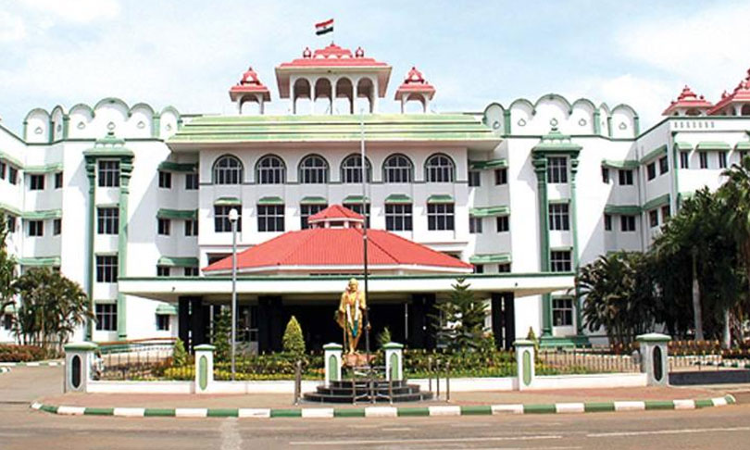- Home
- /
- High Courts
- /
- Madras High Court
- /
- Pension Is Not Charity, Mentally...
Pension Is Not Charity, Mentally Disabled Dependents Of Govt Servants Can Be Given Pension Without Income Certificate: Madras High Court
Upasana Sajeev
27 Jun 2025 10:00 AM IST
The Madras High Court has stressed that pension is a matter of right and not charity and the authorities should exhibit alacrity while disbursing pension for the benefit of mentally disabled persons. The bench of Justice GR Swaminathan and Justice K Rajasekar observed that pension should be seen as a facet of Article 21 of the Constitution, and effort must be taken to...
The Madras High Court has stressed that pension is a matter of right and not charity and the authorities should exhibit alacrity while disbursing pension for the benefit of mentally disabled persons.
The bench of Justice GR Swaminathan and Justice K Rajasekar observed that pension should be seen as a facet of Article 21 of the Constitution, and effort must be taken to effectuate the benevolent object of the statutory rules.
“Pension has always been characterized as a matter of right and not charity or bounty. When it comes to extending the benefit for the mentally disabled, the authority must exhibit alacrity. Such an approach alone would subserve and effectuate the benevolent object with which the statutory rules have been formulated. They should be seen as one more facet of Article 21 of the Constitution of India,” the court said.
The court thus observed that pensions to sons/daughters of government servants, who were mentally disabled and fell within the scope of pension rules must be disbursed on submission of medical certificate without insisting on the income certificate. The court also added that the order sanctioning the pension must be passed without any delays.
“We hold that the son/daughter of a pensioner who is mentally disabled and who falls within the scope of the pension rules should be disbursed with family pension on submission of the medical certificate evidencing his/her incapacity to earn livelihood on their own without insisting on certificate denoting income from all sources. The sanction order must be passed without any delay after the documents mentioned in the statutory rules are submitted,” the court observed.
The court was hearing an appeal preferred by the Principal Accountant General against an order of a single judge directing the Accountant General to pay family pension to the younger brother of the original petitioner who was suffering from intellectual disability.
When the appeal was taken up, the court was informed that the single judge's order had been complied with. When the bench wondered why the appeal had been filed, it was informed that the appellant wanted to expunge certain remarks made by the single judge. Since the order had been duly complied with, the court conceded with the request and expunged the remarks.
Before parting with the case, the court also remarked about an incident where the daughter of a former High Court judge, who was physically and mentally challenged, was yet to receive the pension. The court noted that though the necessary documents had been submitted by the younger sister, who was appointed as the legal guardian, the file had been kept pending and the parties were asked to submit the same set of documents again.
The court said that it was agonising to see that the daughter had not been sanctioned the family pension, even after an year of her mother's demise, the court called upon the Registrar General to liaison with the authorities concerned and ensure that the family pension is disbursed at the earliest.
The court noted that as per Rule 54(6) of CCS (Pension) Rules, a son or daughter of a government servant, who was suffering from any disorder of disability of mind rendering him/her ineligible to earn a living even after attaining the age of 25 years was eligible for family pension. The court noted that as per the provisions a medical officer not below the rank of a civil surgeon has to give certificate setting out the mental or physical condition of the child. The court highlighted that there was no requirement to produce the income certificate, and thus, the authorities could not insist on producing the income certificate, as had been seen in many cases.
Counsel for A: Ms. S. Mahalakshmi Standing Counsel
Counsel for Respondents: Mr. N. Satheesh Kumar Additional Government Pleader
Case Title: The Principal Accountant General (A&E) v. A.V Jerald and Others
Citation: 2025 LiveLaw (Mad) 218
Case No: W.A(MD)No.1603 of 2025



